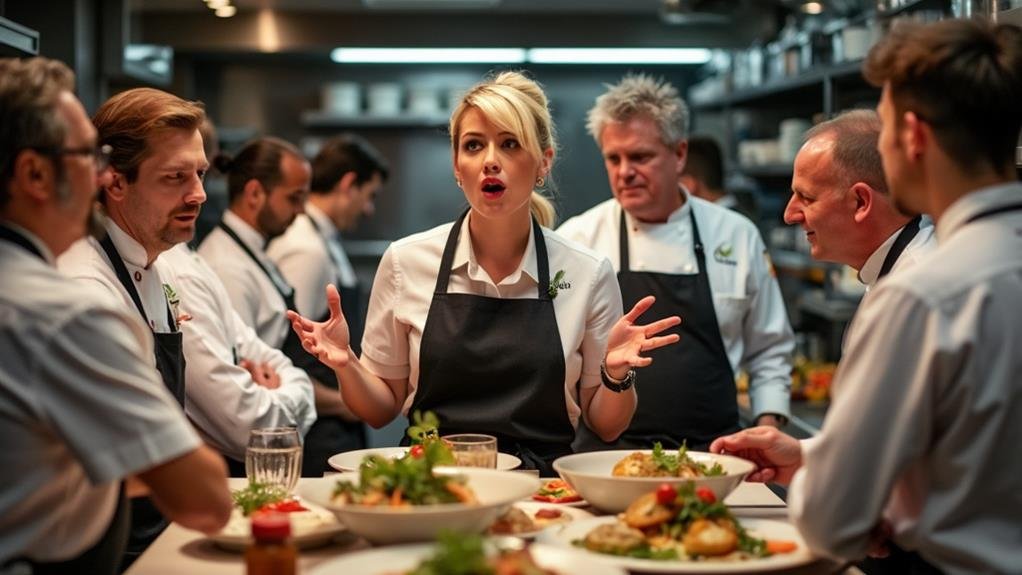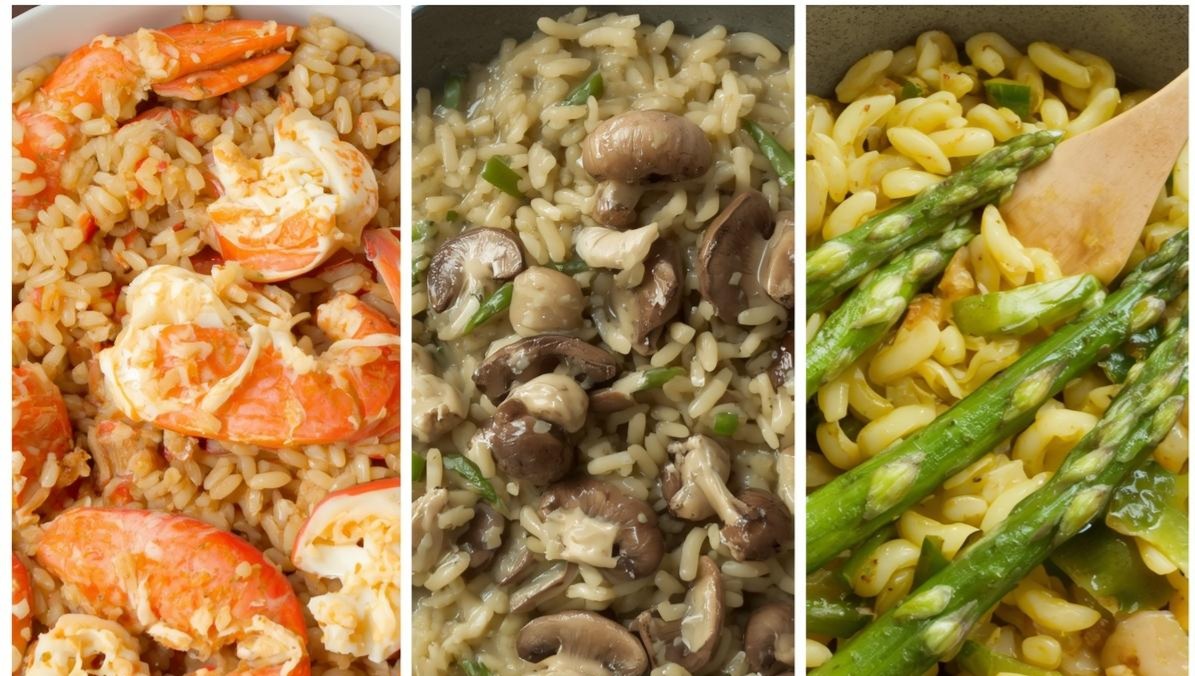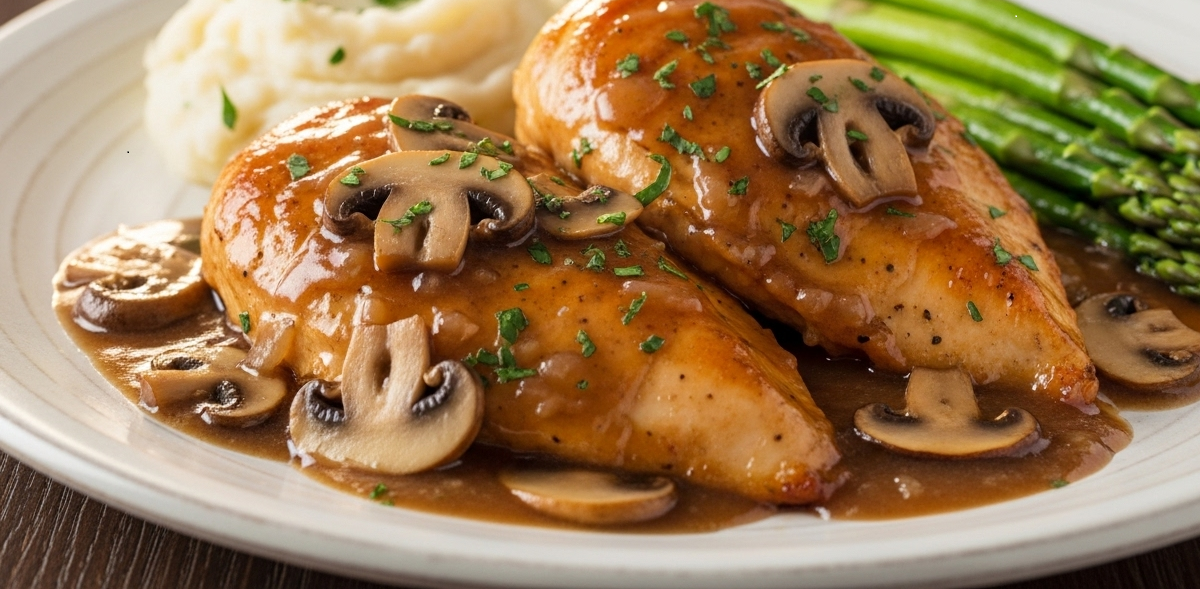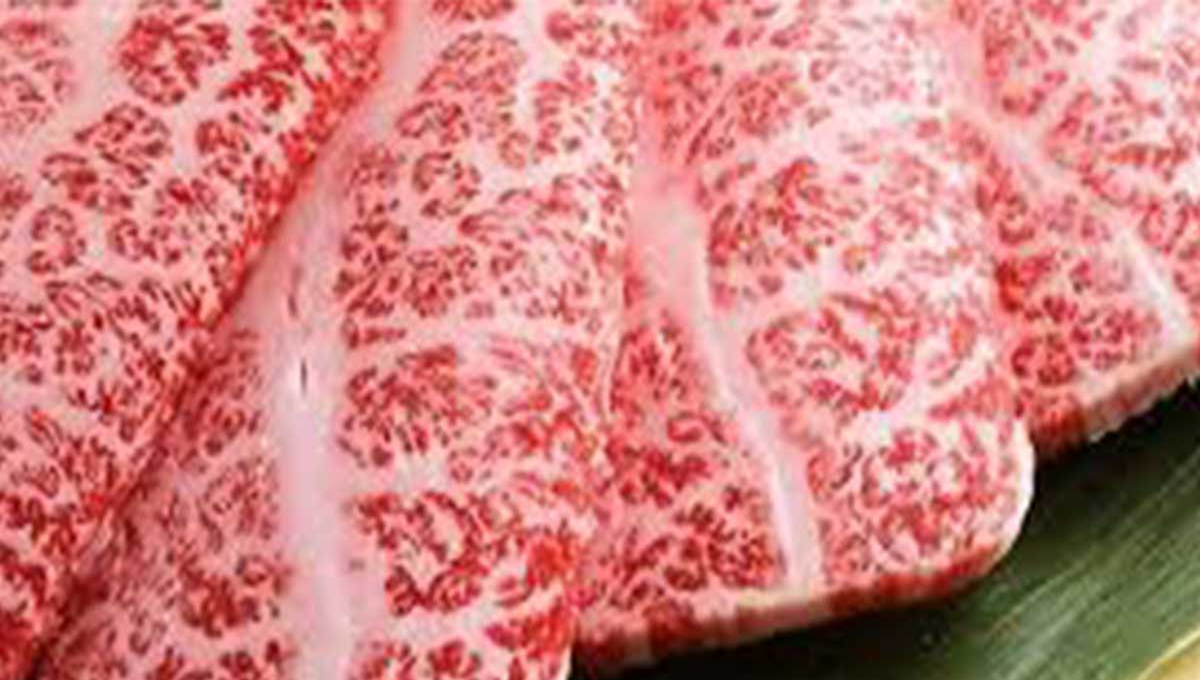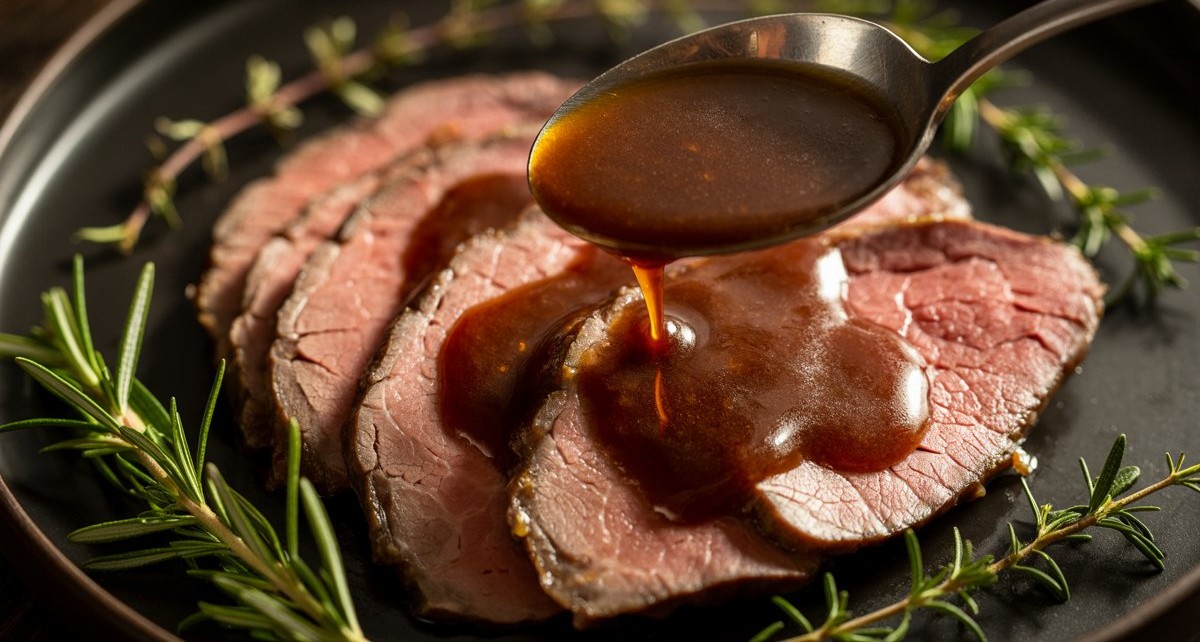Omi Hopper explains that Gordon Ramsay's classic criticism isn't just harsh feedback; it's a tool for growth. His unique terminology captures fundamental culinary skills and challenges chefs to improve. When Ramsay uses terms like "clunky," he's pointing out flaws in dish presentation, pushing you to think critically about how you plate your food. His critiques may seem direct, but they stress the significance of efficiency and technique. This constructive feedback helps you build resilience and refine your skills, preparing you for success in the kitchen. Keep going to uncover more insights about transforming criticism into culinary excellence.
Understanding Ramsay's Unique Terminology
Gordon Ramsay's unique vocabulary is vital for contestants aiming to excel in his culinary competitions. Grasping this terminology allows you to understand the essence of his classic critiques, which often blend traditional culinary language with his distinctive flair. His cooking philosophy stresses the importance of mastering essential skills, akin to how Wolfgang Puck's MasterClass prioritizes necessary techniques. When you hear terms like "overdone" or "underdone," their meanings are clear; however, his colorful expressions may surprise you if you're unprepared.
In the dynamic environment of Ramsay's shows, participants must swiftly adjust to his particular way of discussing food. His language transcends mere creative curses; it acts as a vital resource for growth. If he labels a dish "awkward," it's not merely a harsh remark; it's an invitation to improve your plating abilities.
Ramsay's terminology is not just for emphasis; it aims to motivate chefs to elevate their skills. By becoming familiar with his lexicon, you gain insights into the elements that define outstanding cuisine. Embrace the challenge, and let his language lead you toward culinary mastery. Understanding Ramsay's vocabulary is your pathway to achieving success in the culinary realm.
Decoding Ramsay's Feedback Style
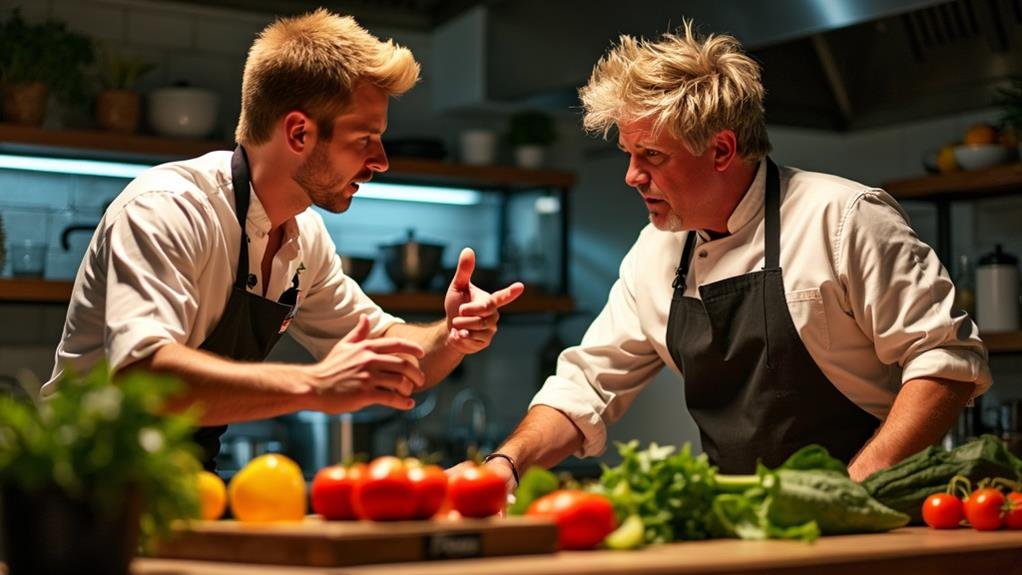
Ramsay's unique terms create a foundation for interpreting his feedback style, which can often seem complex. When you observe him critique contestants, it's vital to recognize that his remarks aren't merely personal insults; they aim to promote growth. Ramsay's feedback might appear blunt, but it is designed to propel you toward culinary excellence. This method mirrors how chefs like Gordon Ramsay himself developed their culinary talents through insightful critique and hands-on experience.
He frequently highlights specific elements, such as dish presentation or cooking technique, encouraging rapid adaptation. For instance, if he states that a dish lacks finesse, he's not just being dramatic; he's signaling the need for a more refined approach. This directness may feel daunting, yet it is essential for success in the culinary industry.
Additionally, Ramsay's feedback frequently underscores the significance of time management and operational efficiency—key abilities in high-pressure kitchens. By grasping the purpose behind his critiques, you can transform what may seem like harsh comments into invaluable learning opportunities. Ultimately, understanding Ramsay's feedback style allows you to embrace criticism as a means of growth, equipping you to navigate the competitive realm of cooking competitions with increased confidence and skill.
The Meaning Behind "Clunky"
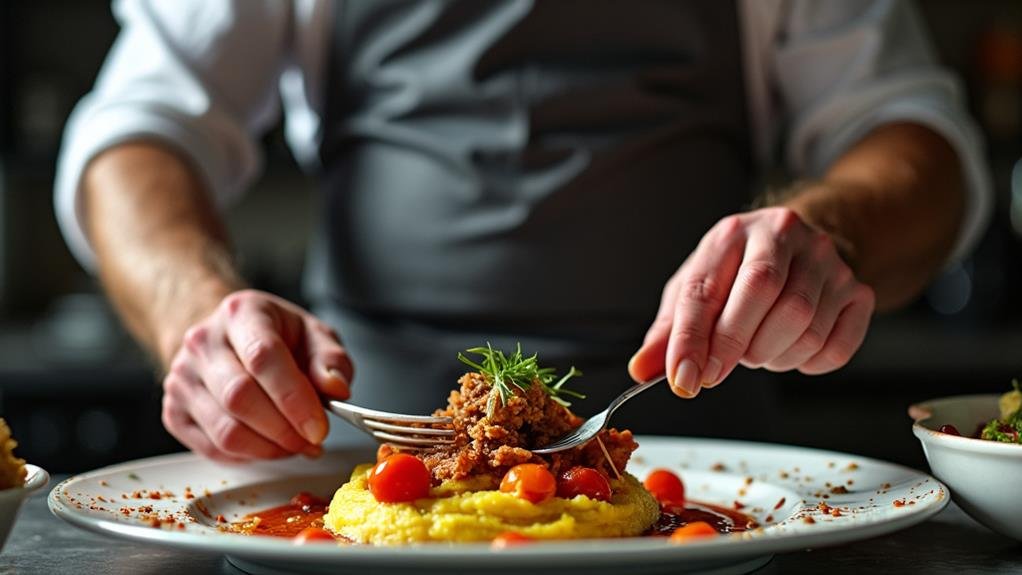
Gordon Ramsay's use of the term "awkward" pinpoints the flaws in a dish's presentation. When he labels a plate as awkward, he emphasizes that the components are not arranged in harmony; instead, they look clumsy or disconnected. This critique is crucial for competitors like Omi Hopper, who must learn the subtleties of presentation to elevate their culinary creations. An awkward arrangement can overshadow the flavors, diminishing the chef's efforts. Learning techniques from platforms like Gordon Ramsay's Masterclass can aid chefs in sidestepping these issues and refining their plating abilities.
In essence, "awkward" reflects a lack of elegance. It may indicate that ingredients are stacked carelessly, colors clash, or the overall look is unbalanced. For emerging chefs, recognizing this feedback prompts critical thinking about how each element interacts on the plate. Attention must be paid not only to taste but to visual attractiveness as well.
When Ramsay identifies awkwardness, he is not merely being critical; he is pushing you to hone your skills and elevate your culinary craft. By accepting this guidance, you can reshape your cooking approach and create dishes that are both delicious and visually appealing.
Growth Through Constructive Criticism

Constructive feedback is essential in your culinary journey as a chef, particularly when it comes from a renowned figure like Gordon Ramsay. His critiques, while sometimes blunt, are crucial for your development and enhancement. When Ramsay reviews your dish, he's not merely identifying issues; he's providing detailed observations that can elevate your culinary skills. Recognizing that his feedback stems from a commitment to excellence can help you embrace it rather than shy away.
For example, mastering skills such as carving a whole chicken or grasping the nuances of various chicken cuts can significantly enhance your cooking repertoire. When Ramsay describes a dish as "clunky," it's a cue for you to improve your presentation, similar to the process of preparing a whole chicken. This form of constructive feedback motivates you to assess your work critically and adjust your methodologies accordingly. It's a chance to discover what succeeds and what falls short in the culinary field.
Learning Resilience in the Kitchen
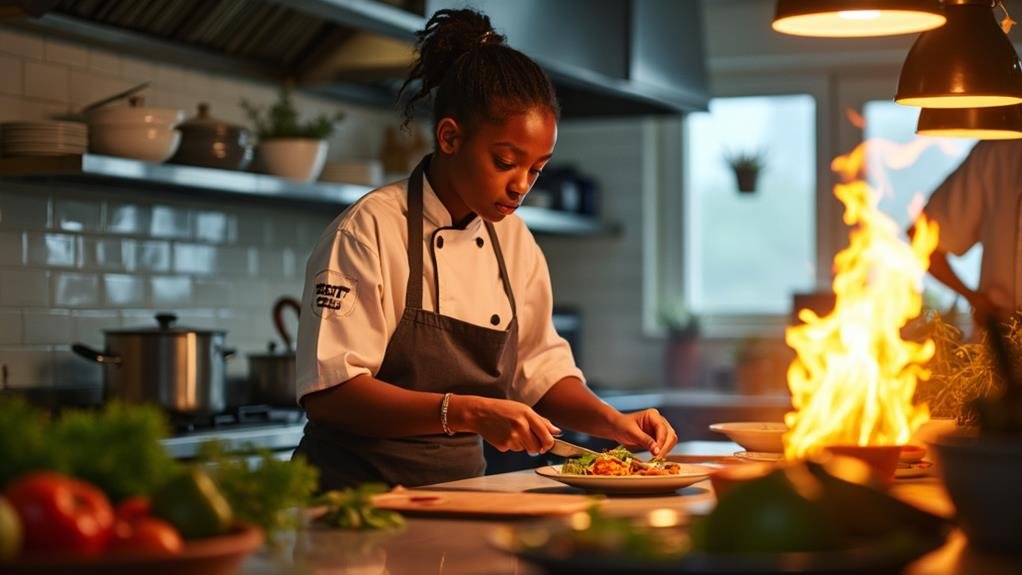
In the bustling environment of a restaurant kitchen, resilience proves vital for overcoming obstacles. Each shift brings challenges that test your ability to adapt and recover. When you receive feedback—especially from renowned chefs like Gordon Ramsay—it can feel daunting. However, accepting that critique is crucial for developing resilience. Familiarity with culinary traditions, such as distinguishing between Cottage Pie and Shepherd's Pie, enhances your adaptability as you perfect your recipes.
Ramsay's feedback, though often direct, plays an essential role. It encourages you to hone your techniques and elevate your presentation. Rather than perceiving criticism as a hindrance, view it as a chance for growth. Learning resilience involves acknowledging that errors are integral to the journey.
As you navigate the hectic kitchen landscape, you cultivate the ability to stay composed and concentrate on solutions. Resilience encompasses not just managing setbacks but also converting them into opportunities for success. Each hurdle you face—be it an overlooked ingredient or a dish that misses the mark—teaches you to think on your feet and respond creatively. This approach enables you to excel not only in culinary contests but throughout your culinary journey. Ultimately, developing resilience in the kitchen equips you with the tools necessary for success, both in your personal life and professional career.
